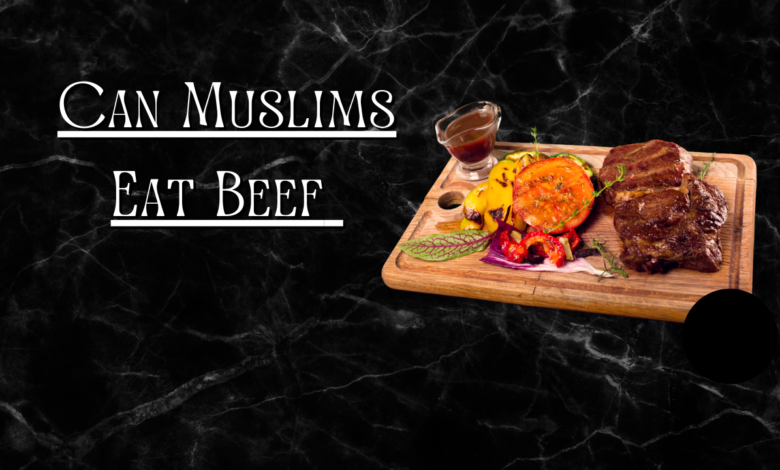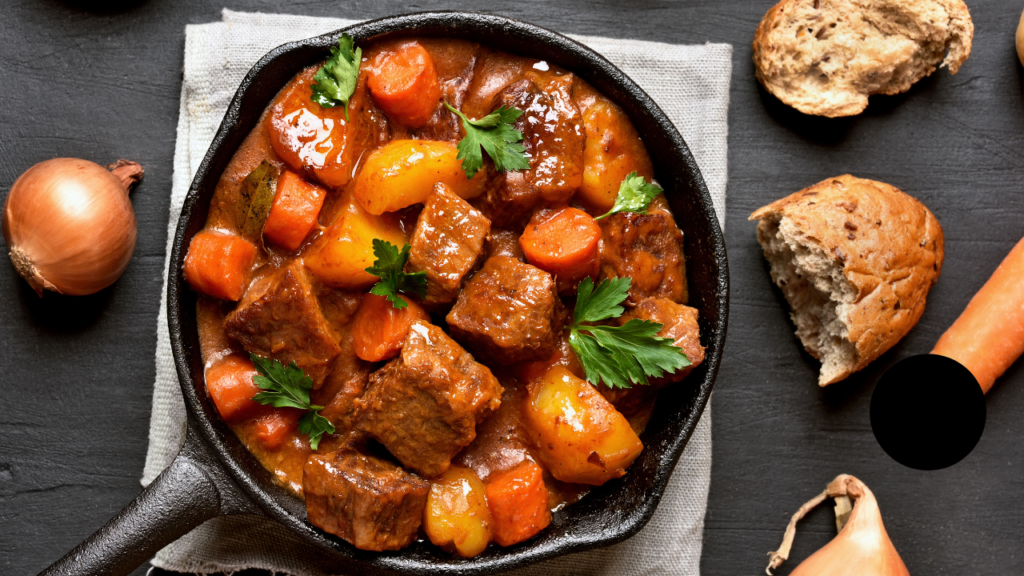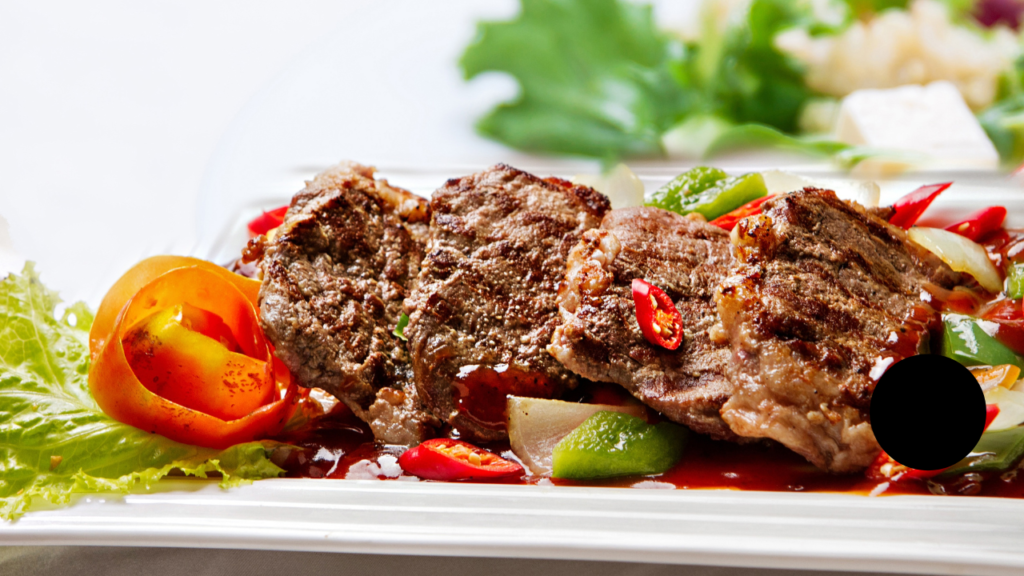Can Muslims Eat Beef?
Navigating the Halal Guidelines for Beef Consumption in Islam

Can Muslims Eat Beef?
Yes, it is permissible for Muslims to eat beef if it meets the criteria of being halal, which includes proper slaughter and adherence to Islamic dietary guidelines.

Introduction
The question of whether Muslims can eat beef is a topic of considerable interest and discussion. Dietary laws in Islam, known as “halal,” provide guidelines for what is permissible and what is forbidden when it comes to food. Beef, being one of the most widely consumed meats in the world, is a subject of particular concern for many Muslims. In this article, we will explore the principles of halal dietary practices and address the issue of beef consumption within the framework of Islamic teachings.
Understanding Halal
Halal, an Arabic word meaning “permissible” or “lawful,” is a set of dietary guidelines that Muslims are obligated to follow. These guidelines are derived from the Quran, the holy book of Islam, and the Hadith, which are the recorded sayings and actions of Prophet Muhammad (peace be upon him). The concept of halal extends beyond just meat; it encompasses all aspects of a Muslim’s life, including food, hygiene, and conduct.
Also check.
- What To Say When Someone Dies In Islam
- What is Islamism?
- What Does Allah Look Like?
- Who is the Wessiah in Islam?
- Can Men Wear Rings in Islam?
Principles of Halal Meat
- Slaughter Method: The most critical aspect of determining whether meat is halal or not is the method of slaughter. Islamic law requires that animals be slaughtered in the name of Allah (God) by a Muslim who is of sound mind and has reached the age of maturity. The animal should be slaughtered by swiftly cutting its throat, windpipe, and blood vessels in the neck while reciting the name of Allah.
- Forbidden Animals: Certain animals are explicitly prohibited in Islam, and their meat is considered haram (forbidden). These include pork and its by-products, as well as animals that have died of themselves (carrion), and animals sacrificed to other than Allah.
- Blood Draining: The blood must be fully drained from the animal’s body, as consuming blood is strictly forbidden in Islam.
- Cross-Contamination: Meat should not come into contact with any haram substances or utensils, ensuring that it remains pure and uncontaminated.
Beef in the Islamic Diet
Beef is not inherently prohibited in Islam, and Muslims are allowed to consume it if the following halal principles are observed:
- Slaughter: As mentioned earlier, the method of slaughter is of paramount importance. If the beef is sourced from an animal that has been slaughtered according to Islamic guidelines, it is considered halal.
- Quality Assurance: Muslims are encouraged to purchase meat from reputable sources or certified halal butchers who adhere to Islamic slaughtering practices. This ensures that the meat they consume meets the halal criteria.
- Avoiding Cross-Contamination: Muslims should take precautions to prevent cross-contamination between halal and non-halal foods. This includes using separate cutting boards, utensils, and cooking equipment for halal and non-halal items.
- Check Ingredients: When consuming processed or pre-packaged foods that contain beef, Muslims should carefully read ingredient labels to ensure that no haram additives or preservatives are used.
Cultural Variations
It’s important to note that dietary practices can vary among Muslims from different cultural backgrounds. While beef is generally considered halal, there may be variations in how it is prepared and consumed based on regional customs and traditions. Some Muslims may choose to abstain from beef or other types of meat for personal or health reasons.
Conclusion
In summary, Muslims can eat beef as long as it adheres to the principles of halal, including the proper method of slaughter, avoidance of haram substances, and the use of separate utensils and equipment to prevent cross-contamination. Halal dietary practices are an essential part of Islamic tradition, and they provide a framework for Muslims to make informed choices about the food they consume. Ultimately, it is the responsibility of each individual Muslim to ensure that the beef they eat is prepared and sourced in accordance with these guidelines to maintain their commitment to halal dietary practices.

FAQs
Is it permissible for Muslims to eat beef?
Yes, it is permissible for Muslims to eat beef if it meets the criteria of being halal, which includes proper slaughter and adherence to Islamic dietary guidelines.
What are the key principles of halal meat consumption?
Halal meat consumption involves proper Islamic slaughter, avoidance of haram (forbidden) substances, complete blood drainage, and prevention of cross-contamination with non-halal foods.
Can Muslims eat any type of beef?
Muslims can eat beef as long as it comes from an animal that has been slaughtered according to Islamic principles. Certain animals, such as pork, are explicitly prohibited in Islam.
How can I ensure that the beef I consume is halal?
To ensure beef is halal, purchase it from reputable sources or certified halal butchers. Additionally, read ingredient labels on processed or pre-packaged foods containing beef.
Are there cultural variations in beef consumption among Muslims?
Yes, dietary practices can vary among Muslims from different cultural backgrounds, leading to variations in how beef is prepared and consumed.
Can Muslims eat beef dishes prepared by non-Muslims?
Muslims can eat beef dishes prepared by non-Muslims as long as the beef used is halal and no haram ingredients or substances are present in the dish.
What are some haram ingredients or substances to watch out for in beef dishes?
Haram ingredients or substances to avoid in beef dishes include pork and its by-products, alcohol, and any other prohibited additives.
Are there any circumstances in which beef would not be considered halal?
Beef would not be considered halal if it does not meet the criteria of proper Islamic slaughter, such as if the animal is not slaughtered in the name of Allah or if it is carrion.
Can Muslims eat beef during Ramadan or other religious fasting periods?
Muslims can eat beef during Ramadan and other fasting periods as long as it complies with halal dietary principles and is consumed during the permissible eating hours.
What should I do if I have doubts about the halal status of beef?
If you have doubts about the halal status of beef, it is recommended to consult with a knowledgeable religious authority or a certified halal organization for clarification and guidance.




